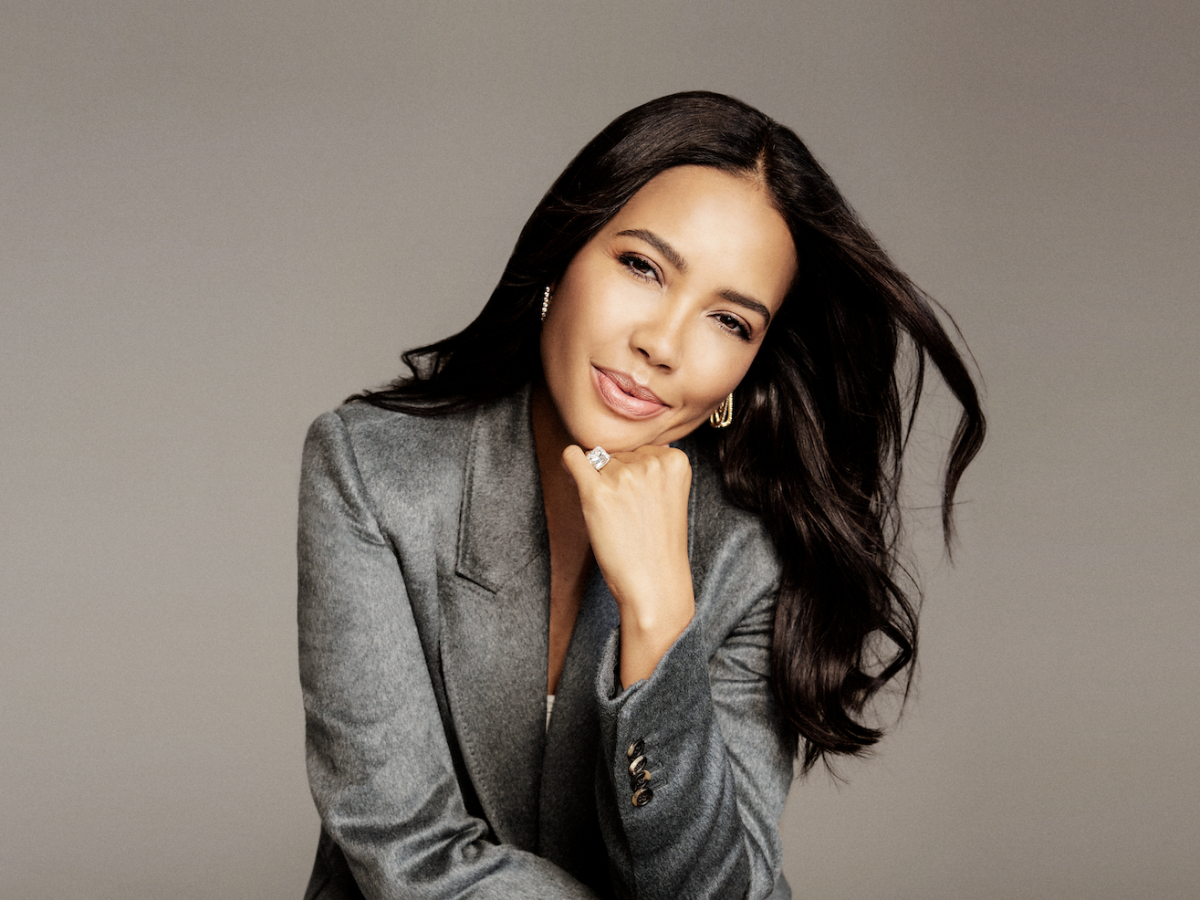
Emma Grede’s youthful face rivals that of an intern’s as she appears on the Zoom screen. Flanked by the rolling hills of Los Angeles, bright skies and waving palm trees, it’s a much different scene than the East London neighborhood where she grew up. And despite her young countenance, the 42-year-old serial entrepreneur has already accomplished what people twice her age only dream of.
Hailing from East London, her business acumen took her to the States to grow her businesses, which includes clothing brands SKIMS and Good American, two of the most lucrative spin-offs from the Kardashian brood.
After years of brand-building for others, Grede recently decided to step front and center to executive produce her own show on Roku, Side Hustlers, which documents her journey helping female entrepreneurs turn their side hustles into full-time careers.
After becoming one of the richest self-made women in the country, why is she leaning this hard into mentorship?
“What I’m consumed with at this point in my career is constantly looking for the answers to the question of how do you open up the pathways for others,” Grede tells ESSENCE. “I want people, particularly Black women, to know there isn’t one school or internship or fundraising method to get to where you want to be. There’s a lot of different paths. And I know that because my path has been fairly untraditional.”
That nonlinear professional path Grede speaks of began as a pre-teen, when she took on a paper route job to help her family, which was led by a single mother of four girls. From there she took on a variety of jobs while in school. So much so she dropped out of college in her first year to focus on working. That risky bet on herself paid off tremendously, leading Grede to launch her first startup, London-based entertainment marketing agency ITB Worldwide at just 26-years-old. In 2018 it was sold for an undisclosed amount, and since then Grede has leaned into building SKIMS and Good American into the retail behemoths they are today.
Now, she’s aiming to invest in other woman-founded businesses in the same way others did with hers, and taking viewers along the way.
Grede was first bitten by the entertainment bug when she was tapped to be a judge and investor on the hit business pitch series Shark Tank. She was the first Black woman to ever join the panel in its 15 year run.
“What I knew when I signed up for the show, again, talking about opening up the pathways, was that the rate of Black women submitting applications to be considered for investment would go through the roof,” Grede tells ESSENCE. “I knew Black businesses would be front and center on that stage, which is quite frankly game-changing for so many people.”
Grede calls Side Hustlers a “dream project” because she has the opportunity to focus the lens on what she says are the most important elements of Black entrepreneurship: its layeredness.
“One of the things I wanted to dispel with the show is that Black people aren’t just creating businesses for Black audiences,” Grede tells ESSENCE. “Black entrepreneurs are solving problems around various categories.”
She brings this up because in 2023, only 0.5% of venture capital funding went to Black women founders for a variety of reasons but mainly, data has shown VC funding decisions are underscored by unconscious biases that adversely affect Black-owned businesses.
To help shift this, Grede also serves as the chair to the Fifteen Percent Pledge organization, a non-profit that works with retailers to contractually commit 15 percent of their annual spend to Black businesses. This mission is demonstrated in nearly every episode of Side Hustlers, which Grede says is for every type of business owner.
“From end to end, we’re offering nuggets of wisdom that viewers can immediately and do something with after every watching,” she offers.
The show doesn’t just preach to its audience, it aims to inspire as well.
“Honestly, I relate so much to these women because they are a demonstration of the amount of resilience you have to have as an entrepreneur,” she says. And honestly, it’s because of that I am betting on so many founders that also happen to be Black women. Every time. Because it’s like, I already know that you can do it. I already know that you can take it. I already know that you can get pulled down and you’re going to get back up. And so for me, that’s been part of the joy of doing any of these shows— being able to get behind the people that need it the most. It’s a privilege to do this. I should be so lucky.”





